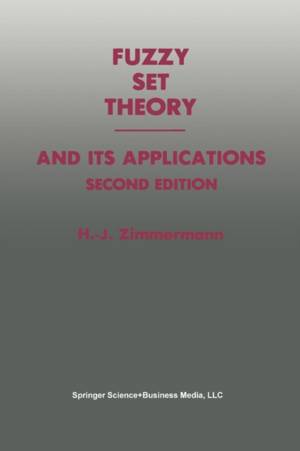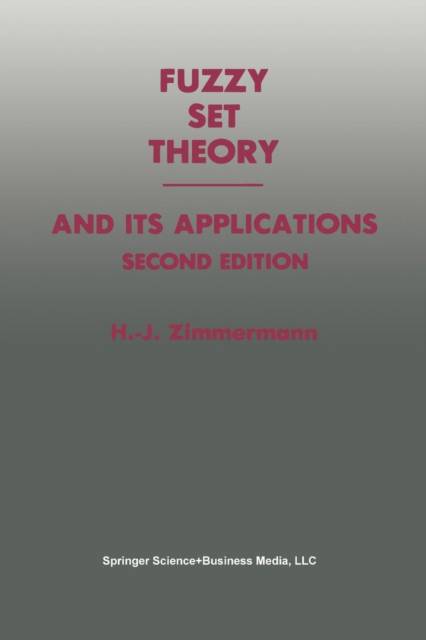
- Afhalen na 1 uur in een winkel met voorraad
- Gratis thuislevering in België vanaf € 30
- Ruim aanbod met 7 miljoen producten
- Afhalen na 1 uur in een winkel met voorraad
- Gratis thuislevering in België vanaf € 30
- Ruim aanbod met 7 miljoen producten
Zoeken
€ 95,04
+ 190 punten
Omschrijving
Since its inception 20 years ago the theory of fuzzy sets has advanced in a variety of ways and in many disciplines. Applications of this theory can be found in artificial intelligence, computer science, control engineering, decision theory, expert systems, logic, management science, operations research, pattern recognition, robotics and others.
Theoretical advances, too, have been made in many directions, and a gap has arisen between advanced theoretical topics and applications, which often use the theory at a rather elementary level. The primary goal of this book is to close this gap - to provide a textbook for courses in fuzzy set theory and a book that can be used as an introduction.
This revised book updates the research agenda, with the chapters of possibility theory, fuzzy logic and approximate reasoning, expert systems and control, decision making and fuzzy set models in operations research being restructured and rewritten. Exercises have been added to almost all chapters and a teacher's manual is available upon request.
Theoretical advances, too, have been made in many directions, and a gap has arisen between advanced theoretical topics and applications, which often use the theory at a rather elementary level. The primary goal of this book is to close this gap - to provide a textbook for courses in fuzzy set theory and a book that can be used as an introduction.
This revised book updates the research agenda, with the chapters of possibility theory, fuzzy logic and approximate reasoning, expert systems and control, decision making and fuzzy set models in operations research being restructured and rewritten. Exercises have been added to almost all chapters and a teacher's manual is available upon request.
Specificaties
Betrokkenen
- Auteur(s):
- Uitgeverij:
Inhoud
- Aantal bladzijden:
- 399
- Taal:
- Engels
Eigenschappen
- Productcode (EAN):
- 9789401579513
- Verschijningsdatum:
- 23/08/2014
- Uitvoering:
- Paperback
- Formaat:
- Trade paperback (VS)
- Afmetingen:
- 152 mm x 229 mm
- Gewicht:
- 562 g

Alleen bij Standaard Boekhandel
+ 190 punten op je klantenkaart van Standaard Boekhandel
Beoordelingen
We publiceren alleen reviews die voldoen aan de voorwaarden voor reviews. Bekijk onze voorwaarden voor reviews.








